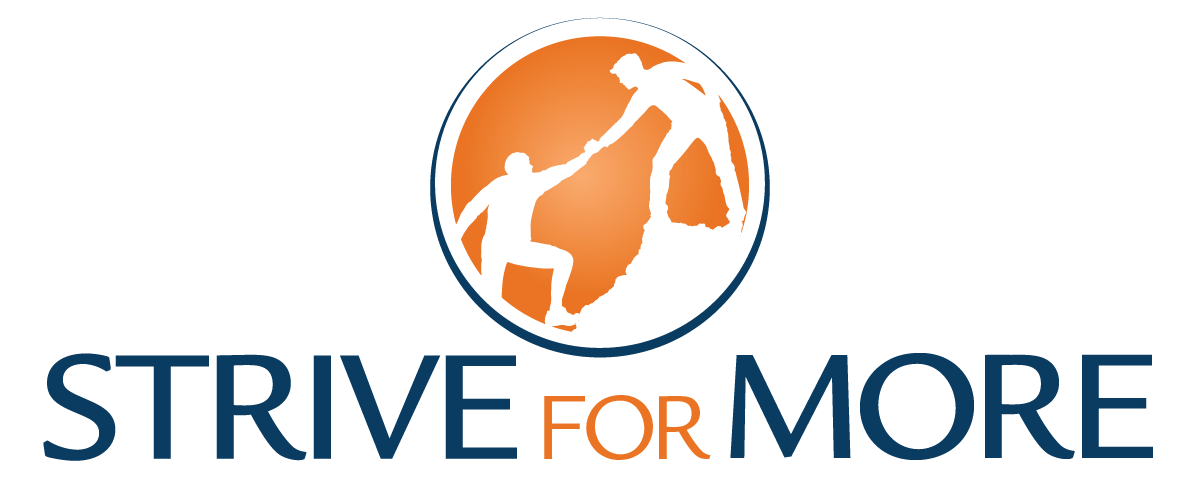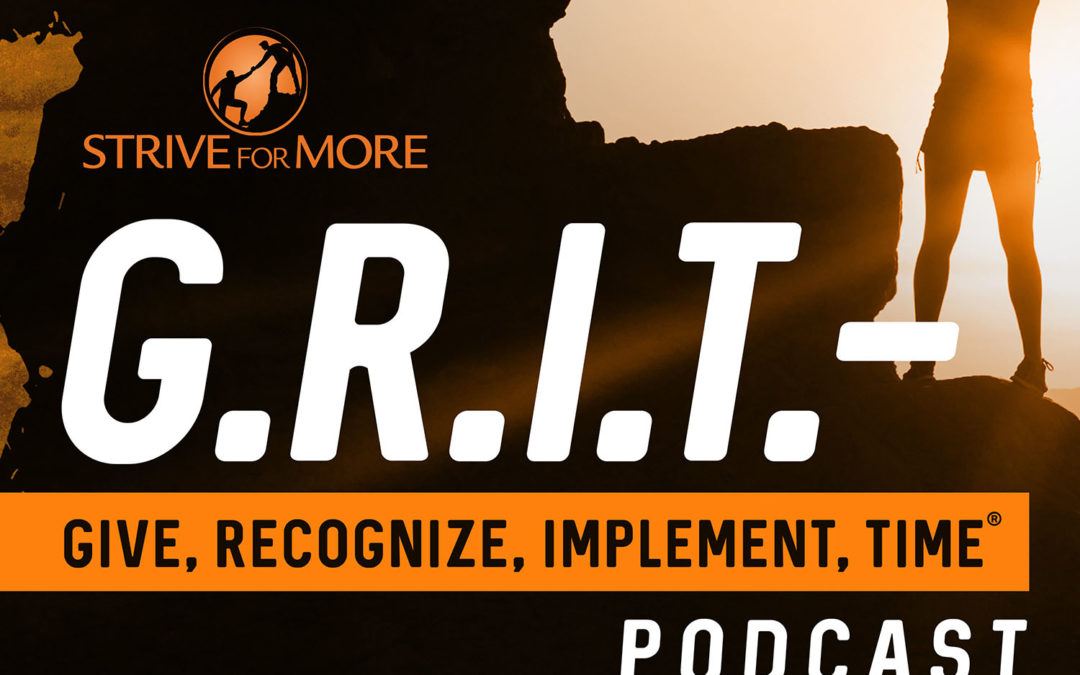About the Episode
“How do I advance my career?”
“How do I have better work/life balance?”
“How do I overcome me weaknesses?”
All of these questions revolve around our personal development – a broad looming topic that means something a bit different to each of us. So, what does personal development mean then? Great question!
Personal development simply refers to anything we want to grow in, be better at, and improve about ourselves. Typically (even in organizations), we characterize our personal development from a negative “What’s wrong with me” perspective. When we do this, we, more often than not, are harder on ourselves than needed and, we make it hard to achieve the growth we want!
We can, however, flip the above script and not only set ourselves up for success in achieving what we want, but also clearly outline what we want to achieve and carve out an easier path to achieving it! Join me as I break down what personal development truly is and how we can easily accomplish it.
Episode Transcript
Hello, everyone, and welcome back to another episode. I’m Steven Nathenson, your host, CEO and founder of Strive for More. Today, we’re going to talk about a little bit of a broad topic, organizationally and personally, in terms of personal development. What is it? What does it mean? As I said, it’s a very, very broad topic. It can mean a lot of things. Specifically, it relates to our own individual growth. How do we develop ourselves? How do we further our skill set? These are all very, very broad questions. What I’ve found is, typically, especially organizationally, we tend to focus on our, quote unquote, weaknesses. What’s wrong? What needs to be fixed? What needs to be, say, coached to develop them? What needs to be, essentially, worked on as a last resort, perhaps, before we put somebody on a performance-improvement plan, right? That’s one of the things that organizations typically do is, “Can we show that record of we’ve made these attempts to rehabilitate, if you will, somebody so that we can actually put them on that performance-improvement plan or let them go?”
I note that because, a lot of times, when we talk about personal development, it’s negatively focused. It’s focused on, what’s wrong with me? Where are my weaknesses? But let’s flip the script because, what is more powerful, developing ourselves because we actually want to grow and get better in an area and something that we see as more positive, something that’s more serving to us, or something that we’re being forced into as something that’s wrong with me, it’s a weakness, something I have to correct? As you listen, which to you sounds like the more motivating and inspiring route to go?
It’s what serves us, what’s positives. If we look at personal development in a non-serving light of, “This is something that is wrong with me. It needs to get fixed. I will beat myself up. I will not give myself self-compassion or forgiveness and accept that change takes time because I want it to change instantaneously. I may be forced into doing something from an organizational standpoint,” then it’s never going to sit well with us because we don’t like to be told what to do as human beings kind of across the board.
That’s one of the very first things about personal development is, how are we looking at it? Are we looking at it in a way where it’s full of serving items that we want to grow in or things that are non-serving in terms of, “I’m being forced into this?” Within that, let’s hone in on what those areas are because it’s very broad. Let’s figure out what it is that we want to do. What do we want to continue to hone even further? What new skills, perhaps, do I want to develop? Where do I want to go with it? It can be very skill oriented. I would love to work on, say, time management, become more efficient with my time, become more productive. Or, it could be I want to work on networking, relationship building. I want to advance my career.
There is a lot of different things that we can focus on. What can help us determine what to do in terms of personal development is what’s most important to us. What’s the meaning behind it, the impact for it? What are we striving for? What do we ultimately want to get to? If we know that end point, that can often reveal what it is that we want to work on to get there. Work, again, it’s typically skill oriented, time management, productivity, efficiency, written communication, oral communication, presenting executive presence. Those are a lot of managing upwards. Those are a lot of different things that we can focus on, skill-wise, at work. Personal, it’s similar, but it can even be health, athletic pursuits, boundaries, balances, relationships. What do I want that to look like?
There’s a lot of connection and crossover. When we look at the overall goals, what’s underneath all of them, a lot of it comes down to, say, emotional intelligence. It’s not just a buzzword, but it’s about knowing yourself, your own self-awareness. Then, how well do I, quote unquote, manage myself? We’ve talked a lot about the difference between reacting and responding on this podcast. The self-awareness is going to let us know, how do we maybe naturally react? That management is going to allow us to know that we react this way, but we don’t have to respond in that way, and that is one of the biggest reasons why we actually created G.R.I.T. here at Strive for More, the giving ourselves permission to be human, the recognizing we always have a choice, the implementing small steps, and then the time component of it because, fundamentally, when we give ourselves permission to be who we are, the serving, the non-serving, it becomes easier to embrace that, to accept who we are, and then move past it and recognize that we have the choices to grow and develop.
On that, I want to highlight the words serving and non-serving again. One of the reasons why I use those terms instead of positive and negative is because of the inherent connotation they have with us. When we view something as negative, we typically see it as bad. It shouldn’t happen. It’s terrible. Why am I this way? It can come with that. Something that’s non-serving is less detrimental, mentally, to us. Okay. It’s not helpful. What do each of those terms mean to you? Do you see that difference? It’s the same thing when we talk about weaknesses. This is a weakness. How does that sit with you? Is it similar to a word negative? What would happen if you characterized it as a growth area instead? Often, the terms that we use, not only with other people but with ourselves, has a huge impact on how we view it, the mentality, and then what nervous system we’re activating within our own bodies that can either uplift us or bring us down.
So, part of G.R.I.T. is talking about the permission we give ourselves to be who we are. Part of it’s about how we talk to ourselves, how we recognize that, while we may not have mastered yet, say, the time management that we want, doesn’t mean that it’s a weakness of ours. It’s just something we’re continuing to grow… grow, excuse me, and hone further, and we can develop it. We are capable of leveraging our past experiences to grow from it, to learn from it, to get better, to fine-tune.
When we talk about personal development, G.R.I.T. plays a huge role because our mentality and our acceptance of ourselves can dictate how we view our own personal development, if it’s possible, how we characterize it and what nervous system we activate, and the areas of focus. We have the choices available to control what we think, how we act, and how we feel. That choice is up to us, and what we want to grow and what we want to develop falls right within them. We get to choose what to focus on, how to characterize it, the impact that growing in those areas are going to create for us, which is inherently going to motivate us to take action towards it. I am less motivated to act on something that’s forced upon me and I view as negative.
I am more motivated to act upon something that has intrinsic meaning and value to me and that I see is going to help me get to, ultimately, where I want to go. Personal development means something different to each of us, but if we use these tricks that we’ve talked about, we can actually shape it in a way that is much more serving, much more likely to actually cause us to take action because we know the value, we know the impact, and we’re inherently motivated to work towards them. It starts with what’s up here, how we think about it, how we characterize it. I’ll stop there because there’s a lot more we can dig into, but it branches into being very personalized, takes a lot of one-on-one thought and conversations to help us unearth that and then find those specific actions to each of us.
But within the topic today, let’s recap. Personal development, as a whole, is incredibly broad. It can have a lot of different meanings for each of us, but it’s all related to our growth and continuing to grow forward-growth areas versus, say, weaknesses. Today, we focus on that [inaudible 00:10:32], but if we flip that script, it is much more powerful, not only for us as individuals but also as organizations, and the way we characterize it, and the culture we have internally that can disengage employees or actually engage them. We’re going to talk a little bit more about that in some upcoming episodes.
So, how are we viewing it? What goes into our own personal development? How are we characterizing it, and do we know what’s in it for us? There’s a lot of different ways we can slice it. Again, it’s very personal, but I’ll leave you with those questions of how you view it. What’s in it for you? What are you striving towards? How do you characterize it? What self-talk comes into play for you. Do you think things are possible? These are all great questions to understand, considering all the areas around which we want to grow, so until the next time, remember, if we never ask, we’ll never know. If we never try, we never will. Be the movement in your life.
Listen to all of our episodes here.
Learn More About How We Help You Harness Your Resilience Through G.R.I.T. – Give, Recognize, Implement, Time®& Find More Actions You Can Take Right NOW!
To learn more about our signature coaching approach which DOES help people all over the world stay focused, overcome, and achieve, please click here.
Want to Assess Your G.R.I.T. – Give, Recognize, Implement, Time® & get a tangible gauge of key human characteristics that WILL make you successful?
Take our G.R.I.T. – Give, Recognize, Implement, Time assessment now and find out!

